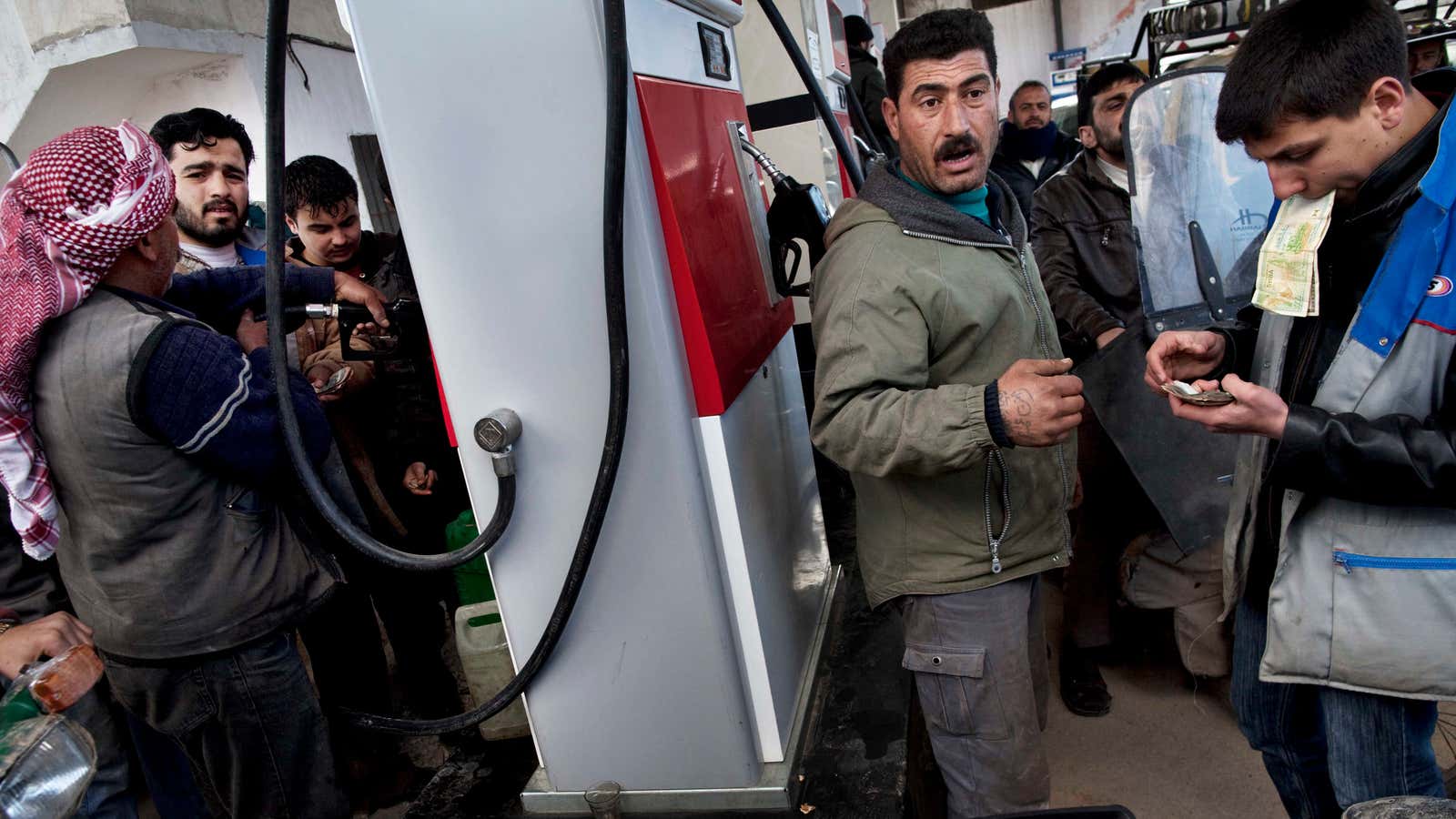As the Syrian civil war drags on, you might wonder how Bashar al-Assad’s regime can keep financing its military operations against rebel forces, along with whatever other semblance of normal public sector activities continue. It’s not like the government is collecting a lot of taxes, and lenders aren’t exactly extending a helping hand to Assad’s pariah regime. With imports choked off, food and gas prices are rising, fueling further instability.
The Syrian economy contracted by 45.7% of GDP last year, according to Syrian researchers, who saw major losses from internal trade, transportation and manufacturing. Retail and other service sector employers got crushed as well, with tourism reporting a 50% decline—which makes me wonder who is still travelling to Syria, staying at hotels and eating at restaurants. Perhaps Iranian generals like the one assassinated on his way out of the country today, or foreign fighters pouring into the country.
Which is a reminder that the country isn’t totally isolated: Allies Russia and Iran have been making financial accommodations, with the former’s banks planning to facilitate oil sales forbidden by Western sanctions, and the latter extending a $1 billion credit line so Syria can import consumer products. There are also reports that Assad is taking a more direct approach to his financial worries: Obtaining contributions directly from companies and wealthy Syrians, and seizing the assets of the regime’s enemies.
And while the war doesn’t look good for Assad—mature insurgencies are hard to beat, and this one is still gaining territory—there is one factor keeping his regime in funds: As the rebel’s grip on the country expands, the area that the government is financially responsible for recedes.
Whatever government finally emerge from this conflict, however, will find a hard road to prosperity ahead—43% of the country’s capital stock is gone, and the death toll could end up as high 90,000.
